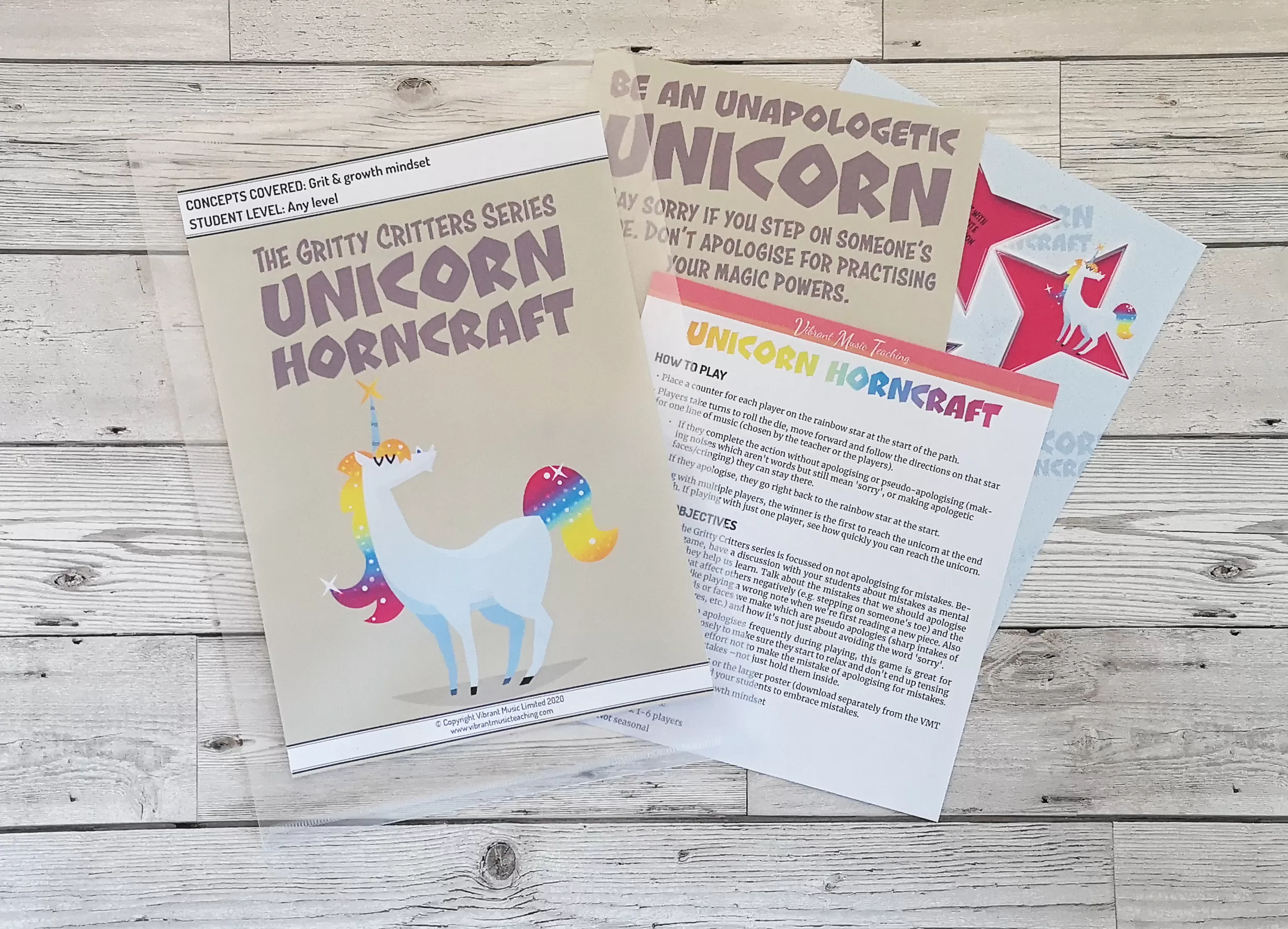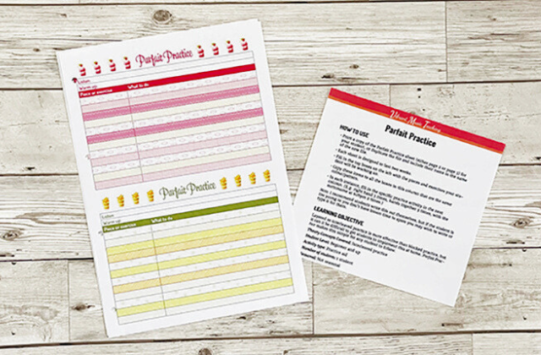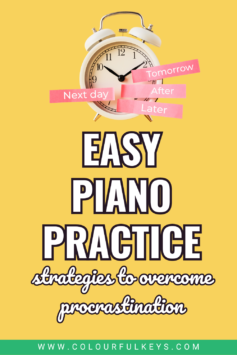
This blog post about overcoming “piano practice procrastination” was written by Joanna Shiel. Joanna is an editorial assistant and guest writer for Vibrant Music Teaching and Colourful Keys. She has been teaching for 14 years and currently runs a small studio online while she travels the world. Her hobbies are language learning, hiking and trying lots of new food.
Tell me if you have a student like this in your studio: Every week you set detailed piano assignments and, every week, this student leaves the lesson excited and enthusiastic…but when the next lesson comes around, you’re faced with yet another excuse as to why practice didn’t happen. If you can relate, your student probably has a case of piano practice procrastination.

We all know that frustrating feeling when students roll up to lessons unprepared. But if it happens every week, it’s time to consider the possibility that there’s something else going on.
Let’s discuss some of the common types of students diagnosed with piano practice procrastination and how you can help remedy the situation.
Missing-Motivation Martin
This student needs a lot of extrinsic motivation in order to develop intrinsic motivation. Think reward stickers, challenges, scoreboards and studio-wide competitions. The Martins of the world need to see that practice has tangible rewards in order for them to regularly practise.
Ultimately, you want this student to start loving piano practice for its own sake. But the Martins usually need a little outside influence at first to get them on their way.
Martin’s Medicine
With these types of students, you’ll need to make their achievements visible in lessons and the studio. I love to put up a board with various piano practice challenges such as ‘40-Piece Challenge’ or ‘100 Days of Practice’.
Posting accomplishments in this way helps students to not only feel inspired, but also allows them to see how they’re progressing.
Stickers are also a simple, cheap and effective way to mark progress and stir motivation. When a student is just starting out, I like to give stickers liberally for things like completed pieces, practice sessions marked or any particularly good behaviour I want to reinforce.
Pro tip: Use stickers judiciously so they don’t become a deterrent from developing the internal motivation we desire in our students.
Perfectionist Peter
This student becomes stuck on getting things so right that they find it difficult to get started with practice at all. The only way to learn piano is to be comfortable making mistakes, and these students dislike errors so much that they struggle to get started on something new.
Peter’s Prescription
Get this student comfortable with being uncomfortable. This means making mistakes a lot and often.
When students like Peter do fail – and they will – it’s important that you praise and celebrate the mistake. Point out that they’ve just made an important and critical discovery in learning – what they need to focus their practice on!
This knowledge is so helpful when they’re not sure what they need to work on, or just need a reminder of what’s important.
Improvisation can be your secret weapon with these types of students. You can practise improvisation explicitly with backing tracks or as part of learning a new piece. For example, once a student has mastered sight reading the melody, let them create a new one while you play the accompanying part.
In the VMT Library, we even have a game all about getting comfortable with mistakes! To get a free copy of ‘Unicorn Horncraft’, enter your info below and we’ll send it directly to your inbox.

Subscribe to the newsletter and get unicorn horncraft
Enter your details to subscribe to the newsletter for piano teachers with information, tips and offers.
I hate spam as much as you do! I will only send you emails related directly to piano teaching and you can unsubscribe at any time.
VMT members can download ‘Unicorn Horncraft’ and the full-sized poster from the Printable Library. Not a member? This game is only a single snowflake on the very top of the tip of the iceberg that is Vibrant Music Teaching. Check us out and join today at vibrantmusicteaching.com.
Forgetful Freya
Forgetful Freya comes to your piano studio missing her method books and with her sheet music in a big pile of disorganised papers. She might “practise” one or two pieces that she already knows, but genuinely can’t remember what piano homework is set week-to-week (despite it being written down in her notebook or in the practice app).
Freya’s Formula
The Freyas of the world need routine and structure. It’s also a very good idea to talk with the parents, as their support will be especially important in helping her remember what tasks must be accomplished.
If you’re not already using assignment sheets or a practice app to send assignments home, start doing that now!
Better yet, take the time to get your student to write down their homework in their own words. It may be faster for you to write, but getting those Forgetful Freyas to take ownership of their work is invaluable.
Next, map out together a specific routine with this student and their parents. It might mean getting as granular as deciding a specific time for a specific task such as, “C scale, 1 octave, hands together at 6.30 pm on Wednesday”.

Take time during lessons to create a detailed plan for Freya’s practice, and use a printed or digital template to save time. The VMT resource ‘Parfait Practice’ can be helpful when structuring this type of granularity, or try the Vivid Practice app so she can’t lose the assignment sheet. 😉
Distracted Dillon
Distracted Dillon is overscheduled and has a multitude of interests. There’s hardly time to breathe, let alone practise piano.
It’s also possible that this student could be going through a tough time in their personal life or a period of hectic scheduling at school, such as end-of-year exams or a school play.
Dillon’s Directive
Be realistic and up-front with this student and their parents. It might be that you’ll have to accept that piano practice just isn’t a priority, and even allow piano practice to be set aside for a time. Even so, make it clear that progress will be slow unless more time can be made for practice.
The prescription for this student is to use fast, short assignments that are easy to complete at home. ‘Take 5’ is a fun resource in the VMT Membership Library to help Dillon squeeze in 5 minutes of targeted practice each day – and 5 minutes is better than zero minutes!
Another possible remedy is to have this student do longer, more frequent piano lessons so that most of the learning can be done with you during the lesson.
Needs-a-Reason Rachael
Racheal needs to feel that there’s a purpose to their practice. This student is most motivated to practise when they have a performance coming up or an exam to aim for in the horizon. But be careful, as the Rachaels of the world can easily become overwhelmed if the goal is too big and too soon.
Rachael’s Remedy
Make sure that your studio has a whole host of performance opportunities throughout the year, as well as dedicated times and deadlines for exam and recital prep.
I love to create a step-by-step checklist for piano students that are solely motivated by exams or recitals. Deadlines with specific dates work best for this student. But before even looking at the exam syllabus, decide on some “non-negotiables” this student must achieve. Things like:
- a specific number of scales learnt
- the amount and type of repertoire they must have experienced
- particulars that must be prepared before exam or recital entry
Review this document at each lesson and mark progress each week.
Vibrant Music Teaching’s exclusive ‘Painless Exam Preparation Planner’ is the perfect resource for creating this checklist, available only for VMT members. Not a member? Learn more at vibrantmusicteaching.com.

How do you help your students overcome piano practice procrastination?
Share your ideas in the comments below.
For more resources on teaching students how to practise, hop on over to Nicola’s ‘Teaching Piano Practice’ page.